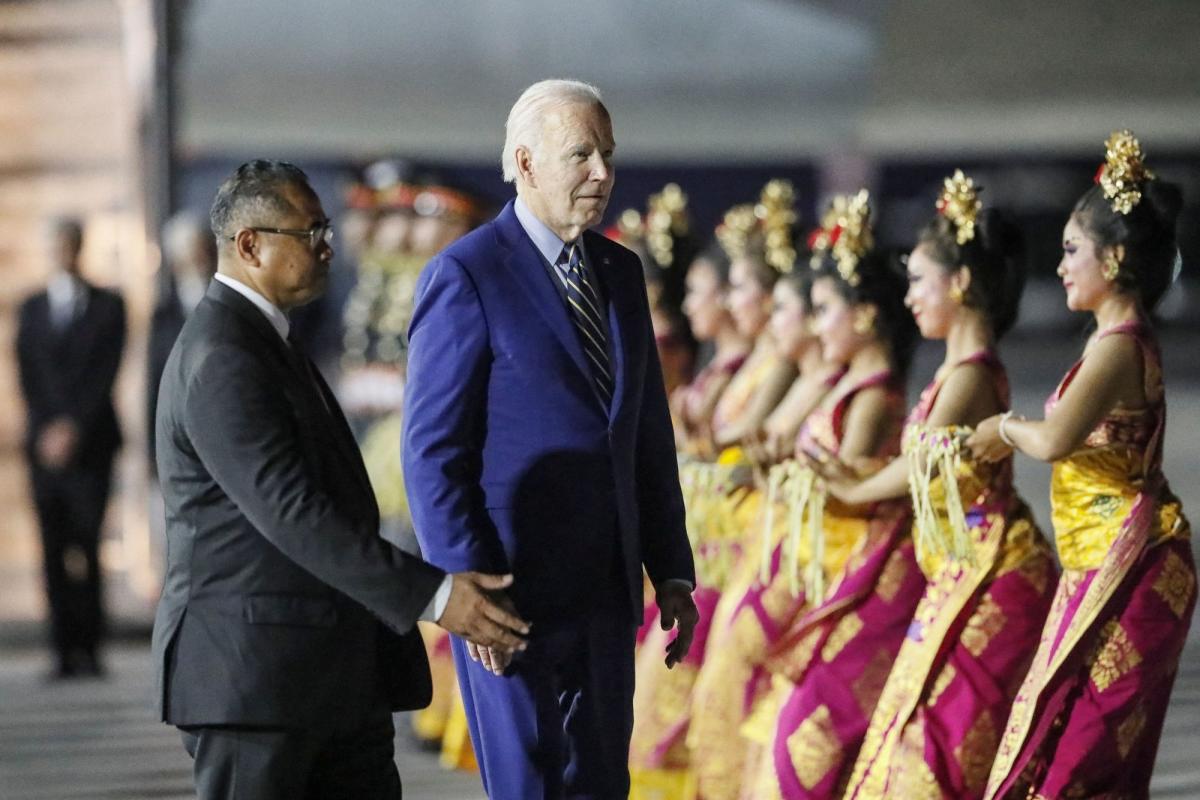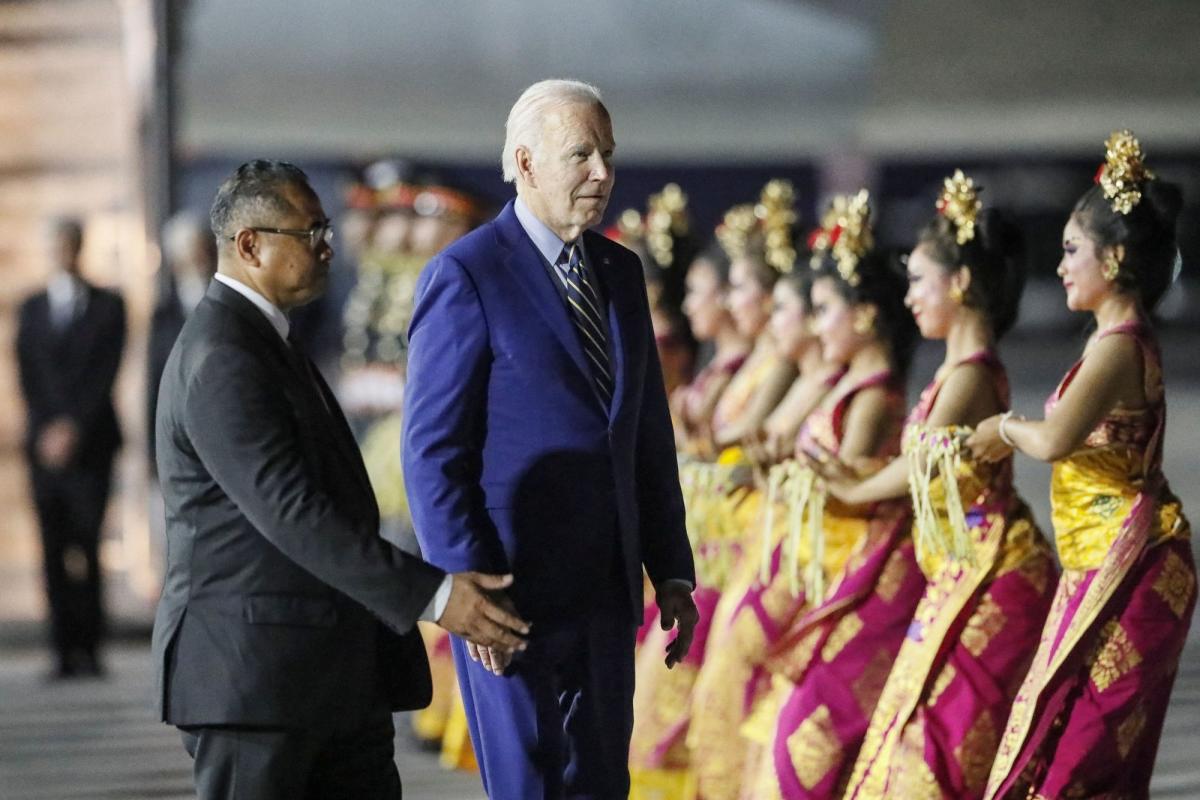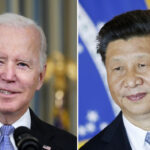
(Bloomberg) — President Joe Biden seeks to prevent US-China ties from deteriorating further in a meeting with Chinese leader Xi Jinping on Monday, American officials said ahead of the long-awaited sit-down.
Most Read from Bloomberg
Biden and Xi will speak Monday evening in Bali, Indonesia, on the sidelines of the Group of 20 summit, in the first in-person meeting between leaders of the world’s biggest economies since the pandemic emerged. Both countries have tempered expectations with tensions high over Russia’s invasion of Ukraine, US curbs on chip exports to China and the status of Taiwan.
Biden will seek to build a floor under the relationship and increase communication responsibly and practically, the US officials said Monday, speaking on condition of anonymity ahead of the meeting. The effort to plan the meeting by itself has helped to resume more normal ties with Beijing, they said.
“We have very little misunderstanding,” Biden told reporters on Sunday in Cambodia. “We’ve just got to figure out where the red lines are and what we — what are the most important things to each of us going into the next two years.”
China cut off working-level cooperation with the US in areas including military relations and climate change earlier this year after Nancy Pelosi became the first House speaker in 25 years to visit Taiwan. Beijing followed that up with unprecedented military drills around the island, while Biden repeated a pledge that US troops would defend Taiwan against an attack.
The US has played down expectations for the meeting, casting it as a first step rather than a decisive showdown. The tensions, along with Russia’s absence from the summit, underscore the challenges facing the G-20 and have fueled doubts about its viability.
Minimize Risks
The US officials framed the meeting as the first serious, in-person US-China diplomacy in years — and said it was the product of weeks of serious and diligent efforts from each side, meaning its very occasion has already somewhat warmed ties.
Biden aims to minimize the risk of mistakes and misinterpretations in interactions between the two countries, the officials said. He understands that the US-China relationship is in many respects the most important for the US, they said.
Conversations with other countries at a pair of Cambodia summits included appreciation for the US commitment to peace and stability in the Taiwan Strait, the officials said. That is the essential feature other countries want to see in the relationship between Beijing, Washington and Taipei, they said.
The president will make clear “that the United States is prepared for stiff competition with China, but does not seek conflict, does not seek confrontation,” US National Security Advisor Jake Sullivan said Sunday.
US officials said negotiations about the meeting’s format went late into the night Sunday, predicting a highly scripted affair. The two presidents are expected to meet for at least a couple hours in a small gathering with some of their senior foreign policy aides.
Xi’s government is in a period of transition and he is expected to bring along officials who are about to be elevated, the officials said.
The leaders will be offered simultaneous translation through earpieces, allowing for a quicker-paced conversation, though Biden aides said they expected the tone to be businesslike. The entire meeting is expected to be conducted with each country’s full team present — the presidents won’t have a more private discussion during the event.
The talks are happening as the US and Europe prepare to impose a cap on the price of Russian oil, in a bid to both limit revenue for the Kremlin’s war machine while keeping the country’s crude on the market. Biden isn’t planning to raise the price cap with Xi, who is Russian President Vladimir Putin’s most important remaining partner, the US officials said.
They said they believe there is some discomfort in Beijing about Russia’s actions and rhetoric, and one official said the US believes China is probably surprised and somewhat embarrassed by the conduct of Russia’s military in Ukraine. Russian forces have floundered in the invasion while killing or wounding more than 15,000 Ukrainian civilians, including hundreds of children, according to the United Nations — atrocities that much of the rest of the world has declared to be war crimes.
Biden’s Preparations
Biden has teed up the Xi encounter with a series of meetings, statements and speeches plainly aimed at Beijing. In Cambodia on Sunday, Biden met with his Japanese and South Korean counterparts, two key regional allies who face increasingly aggressive missile tests from North Korea.
Biden sought input from Japan’s Fumio Kishida and South Korea’s Yoon Suk Yeol on his talks with Xi and explained to them his approach, US officials said. The US has said that Biden will tell Xi that China has a choice: help reign in North Korea or face an escalated US military presence in the region.
Biden also met with the prime minister of Australia, another key ally in the region. He will meet with Indonesian President Joko Widodo on Monday before Xi. Earlier, on Saturday, Biden met with Cambodian Prime Minister Hun Sen and expressed US concerns about Chinese activity at a Cambodian naval base.
Meeting with the Association of Southeast Asian Nations at a summit in Cambodia, Biden told them the US seeks to maintain a “rules-based order” and fight “threats to the rule of law,” a nod to China. The US announced stepped-up efforts to promote maritime security in the region, including combating smuggling and illegal fishing.
“Asean is the heart of my administration’s Indo-Pacific Strategy, and we continue to strengthen our commitment to work in lockstep with an empowered, unified Asean,” Biden said.
Biden enters the Xi meeting bolstered by the Democratic Party’s surprise performance in US midterm elections. He learned Sunday that Democrats retained control of the Senate while control of the House remains unresolved, both serious setbacks for the opposition Republicans.
–With assistance from Iain Marlow.
(Updates with additional background beginning in fourth paragraph)
Most Read from Bloomberg Businessweek
©2022 Bloomberg L.P.




